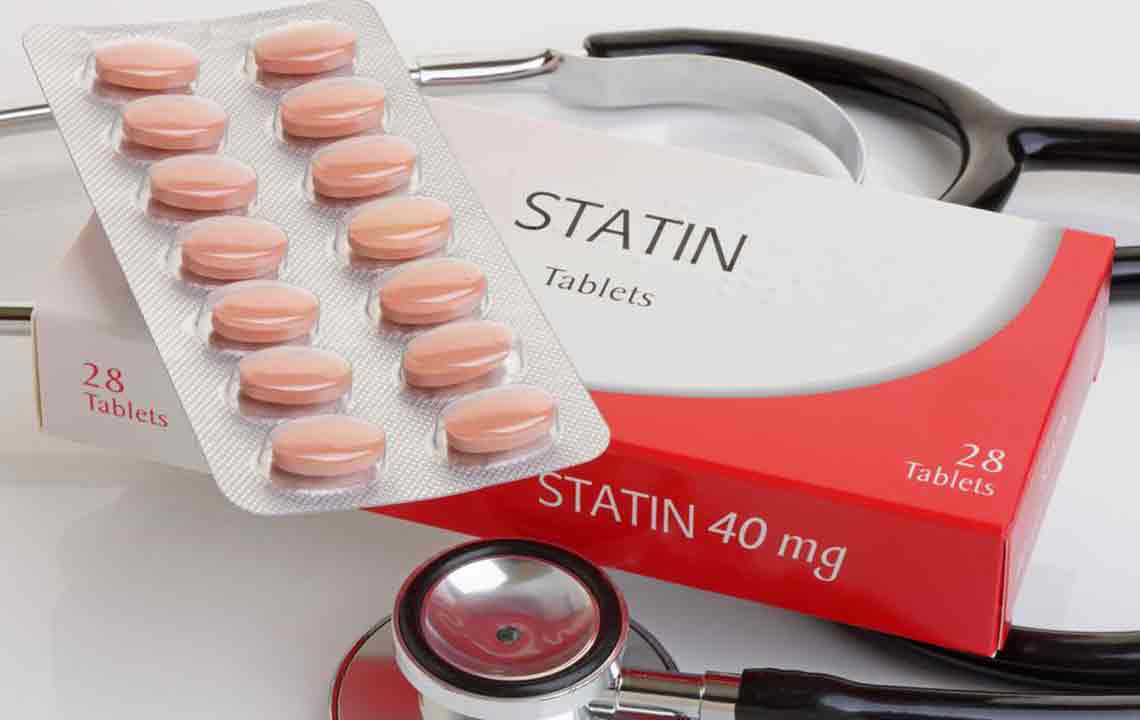Top Statin Alternatives to Lower Cholesterol Levels
Statins are reductase inhibitors which fall under the class of lipid-lowering medications. They are known to be the go-to therapy for lowering bad LDL cholesterol; however, there are plenty of natural alternatives to it. These other treatments can also effectively reduce the cardio-issues.
A director of an institute in Nashville explained statins are medicines that lower cholesterol by inhibiting HMG CoA reductase, an enzyme that helps the body make cholesterol. They are helpful as it reduces the triglycerides along with LDL cholesterol reducing the scope for immune dysfunction or oxidative stress.
Atorvastatin (Lipitor) and rosuvastatin (Crestor) are the high-intensity statins while simvastatin (Zocor), pitavastatin (Livalo), pravastatin (Pravachol), lovastatin (Altoprev), fluvastatin (Lescol) are the list of moderate intensity statins.Whatever the intensity is, all statins work in a similar way but individual body might respond to a certain type better than the other might.

While these statin drugs have proven to be helpful, they can have side effects too. For instance, if you are taking some other medicine, the combination reaction of statin and the other medicine can be dangerous at times. Also, statins cause muscle and joint aches along with nausea and vomiting. When exposed for a long time, it causes irreversible damage to kidney and liver along with neurological side effects.
A cholesterol absorption inhibitor is thus, a commonly prescribed alternative to statins. These drugs do not allow the small intestine to absorb the consumed cholesterol, thus preventing it from mixing in the blood flow.
Bile-acid-binding resins, sequestrants are also a major alternative to statins. It helps to bind to the bile in the intestine; hence preventing the cholesterol absorption in the bloodstream. There are reports and studies that they are the oldest drugs available to treat high cholesterol. However, this alternative to statins is not too effective for people suffering from chronic cholesterol problems. As a side effect, these drugs can cause vitamin deficiencies when exposed for a long time. This can be dangerous, as Vitamin K deficiency can cause a problem in blood clotting.
High cholesterol is often associated with high triglycerides. So those who take medications for high triglycerides lower the fat which consequently lowers the cholesterol. Niacin or vitamin B-3 is a common prescription for high triglycerides which increase good cholesterol (HDL) and lowers bad cholesterol (LDL). The mild side effects include dizziness, headaches, sweating, light-headedness, and nausea – which is nothing when compared to the other side effects of the statins.
Fibrates like fenofibrate (Antara, Lofibra, Fenoglide, Lipofen), clofibrate (Atromid-S) and gemfibrozil (Lopid) are the most commonly prescribed drugs that help to reduce blood fat. Omega-3s are found in fatty fish like herring, mackerel, trout, albacore tuna or salmon which work as supplements as well as medication. It lowers the triglycerides. PCSK9 inhibitors, ETC-1002, and CETP inhibitors are equally helpful to medical LDL. However, all these drugs should not be taken without the supervision of medical experts.
A healthy diet chart
There are plenty of natural remedies available as an alternative to statins. Some cholesterol-lowering effects are available in certain fruits and vegetables which, if inculcated in daily diet chart can help to reduce or at least maintain the cholesterol.
Garlic, artichoke, oat bran, barley, beta-sitosterol, sitostanol, blond psyllium are some of the common food items that help to prevent bad cholesterol. A healthy diet can be an alternative to statins.
Healthy lifestyle for a healthy heart
It has been known for long that exercise raises protective HDL cholesterol. It is particularly important amongst women as exercising lowers LDL cholesterol. Brisk walking, swimming, jogging, dancing or a run on the treadmill are good to go exercise techniques. For best results, resistance training should also be done along with the regular exercise. Postmenopausal women particularly should follow this exercise regimen for just two weeks to see improvements in HDL and LDL cholesterol.
About 20% of heart disease deaths are because of smoking. So, a healthy lifestyle certainly adds up to quitting destructive addictions.
Nutritional supplements in place of chemical drugs are safer to use. A high-potency multivitamin and mineral supplement is often recommended for patients suffering from bad high cholesterol. B-complex vitamins can reduce the homocysteine level which is a toxic protein and is harmful to arteries. Selenium, beta-carotene and Vitamin C and E protect against free-radical damage of the arteries.
Right treatment
It is not possible for the patient to decide what is good for him and go ahead with the medication. A lot of factors such as family medical history, other regular diseases, ongoing medication and many other factors contribute to which alternative would be best suited instead of statins. One should not stop taking the medicines once they feel better without the consultation of the health providers.

